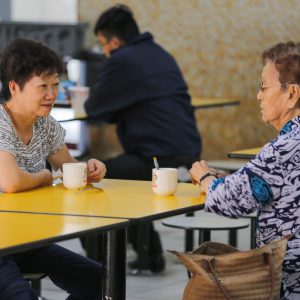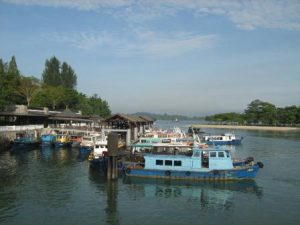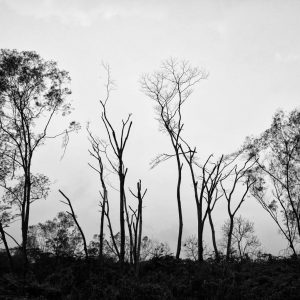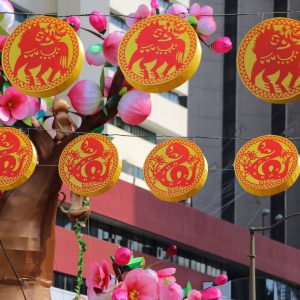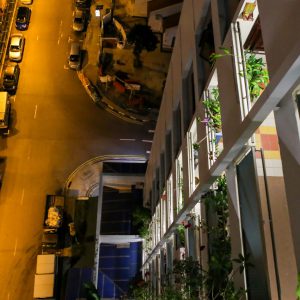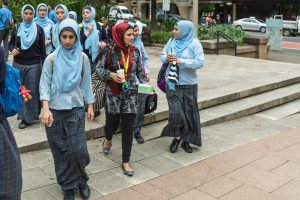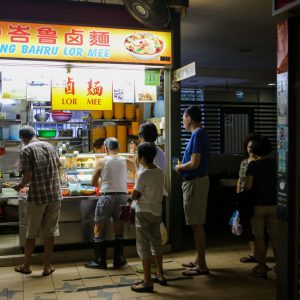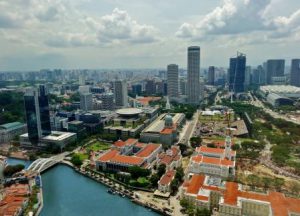News
Bottoms up and chug down your kopi! Inaugurated on 9 June 2016, the Singapore Coffee Festival celebrates Singapore’s unique and rich coffee heritage. Singapore’s coffee culture can be traced back to the colonial era, when coffee-shops (kopi tiam in Hokkien) were an indispensable part of the lives of most working adults. Providing an important space …
Coffee-shops in Colonial Singapore: Domains of Contentious Publics Read More »
What if a stranger, an asylum seeker, turned up at your doorstep? Would you let him enter? Alumna Kirsten Tan (Dept of English Language and Literature) deals with these questions in her award winning film, Dahdi (2014). The film is inspired by the Maritime and Port Authority’s controversial decision to deny a boat of Rohingya …
Singapore acknowledges the importance of the natural environment to economic performance and livability, but the true obstacle lies in assessing the country’s environmental assets at a national level. Awarded with a $4.8 million project over three years, NUS Associate Professor of Geography Daniel Friess will be leading the national-scale assessment of Singapore’s natural capital, along …
Examining Singapore’s Environmental Assets With Natural Capital Singapore Read More »
What was Singapore Chinese society like in the post-war years of 1945-1965? As of 2013, around 74.2% of Singapore’s population is comprised of ethnic Chinese, demonstrative of how impactful the Chinese population has been in the shaping of Singapore as we see it today. In fact, the Chinese Heritage Centre was established on 17 …
A sizeable number of families with children below 15 years of age live in public rental flats in Singapore, but how exactly does housing affect families and the establishment of a home? An ongoing study under the Social Service Research Centre (SSR) at NUS attempts to understand how families define “home,” while examining the obstacles …
Families Living in Public Housing: A Minority Likely to be Stigmatised? Read More »
There are a growing number of studies focused on Muslim migrants in Singapore, but how exactly are Malay-Muslim migrants out of Singapore adapting to new communities overseas? Associate Professor Khairudin Aljunied from the NUS Department of Malay Studies will be leading research on how first-generation Muslim immigrants adapt in Western environments through a case study …
“Cosmopolitan Adaptation” as Strategy for Muslim Immigrants in the West Read More »
Family and population continue to be a hot topic for discussion in Singapore, with much of the country’s nation-building strategies revolving around related public policies. As part of the ISA Joint RC06 (Family) and RC41 (Population) Conference held from 17 to 19 May hosted by the NUS Centre for Family and Population Research – NUS …
Book Launch: Family and Population Changes in Singapore Read More »
From street signs to hawker centre signs, Singapore’s multilingual and multicultural society is reflected in how language is used. Often overlooked by us as we go about our daily lives, the linguistic landscape of public eating places is more telling about Singapore’s language policies than we may realise. Recently awarded a Tier 1 Research Grant …
Food Stall Signage in Singapore: A Reflection of Singapore’s Linguistic Landscape Read More »
Singapore’s government has denied providing social welfare for a long time, but is this ideological resistance taking a toll on society? NUS Provost’s Chair Professor of Sociology Chua Beng Huat tells The Straits Times that poverty in Singapore is not only a financial issue, but an ideological one. Singapore’s capitalist economy causes an unavoidable income …
Poverty in Singapore: Not a Financial Issue, but an Ideological One Read More »
What lessons can developing economies take from Singapore’s success story? Dr Goh Keng Swee is recognized as Singapore’s first economic architect. Despite his passing on 14 May 2010, the visionary’s legacy lives on. Dr Goh firmly believed that non-economic factors trumped economic ones in determining a developing economy’s success. Like other developing nations, Singapore faced …
Lessons of Singapore’s Development for Other Developing Economies Read More »

